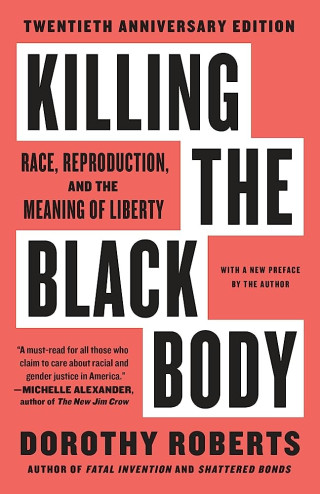As I wrote in Killing the Black Body, even airtight statistics and rational argument aren’t sufficient to demythologize conceptions of Black women. I think the first step must be to understand the function these myths play in U.S. society. They aren’t just the random outgrowth of prejudiced feelings against Black women. The images are very specific and operate in a specific way to uphold specific aspects of U.S. racial capitalism and white supremacy. To refer back to your metaphor of Procrustes, the myths are deployed to force ideas about Black women to fit into a particular bed — a bed structured by intersecting capitalist, racist, and patriarchal ideologies and objectives.
By casting Black women’s sexuality and childbearing as the source of Black people’s subordinated status in America, of Black children’s deprivation, and of America’s social problems more broadly, this mythology serves to deflect attention away from deep structural inequality and toward carceral approaches to meet human needs. It both obscures the need for radical social change and turns Black women’s resistance into crimes.
In Killing the Black Body, for example, I argued that the prosecutions of Black women for being pregnant and using drug s— supported initially by the now-discredited myths of the irredeemable “crack baby” and “pregnant crack addict” — constituted punishment of Black women for having babies and blamed them for harms to Black children that were actually caused by poverty and other consequences of racial capitalism.
Examining the myths with their oppressive functions in mind reveals their inherent contradictions. Some people are confused by reproductive health policies that both deter, punish or prevent Black women from having children and prevent them from having access to abortion. These policies are in tension but further a common objective — to devalue and diminish Black women’s autonomy and freedom, which has always paved the way for greater policing of everyone. (The prosecutions of Black women for being pregnant and using drugs in the 1980s and 1990s, for example, set the precedent for more widespread criminalization of pregnancy, intensified even more by the Supreme Court’s Dobbs decision.)
In February 2011, for Black History Month, anti-abortion organizations erected a giant billboard at the intersection of Sixth Avenue and Watts Street in New York City’s SoHo neighborhood. The billboard displayed the image of a 6-year-old African American girl beneath the words: “THE MOST DANGEROUS PLACE FOR AN AFRICAN AMERICAN IS IN THE WOMB.” That statement is practically the same eugenicist rhetoric politicians and pundits used to advocate for state sterilization of Black women.
